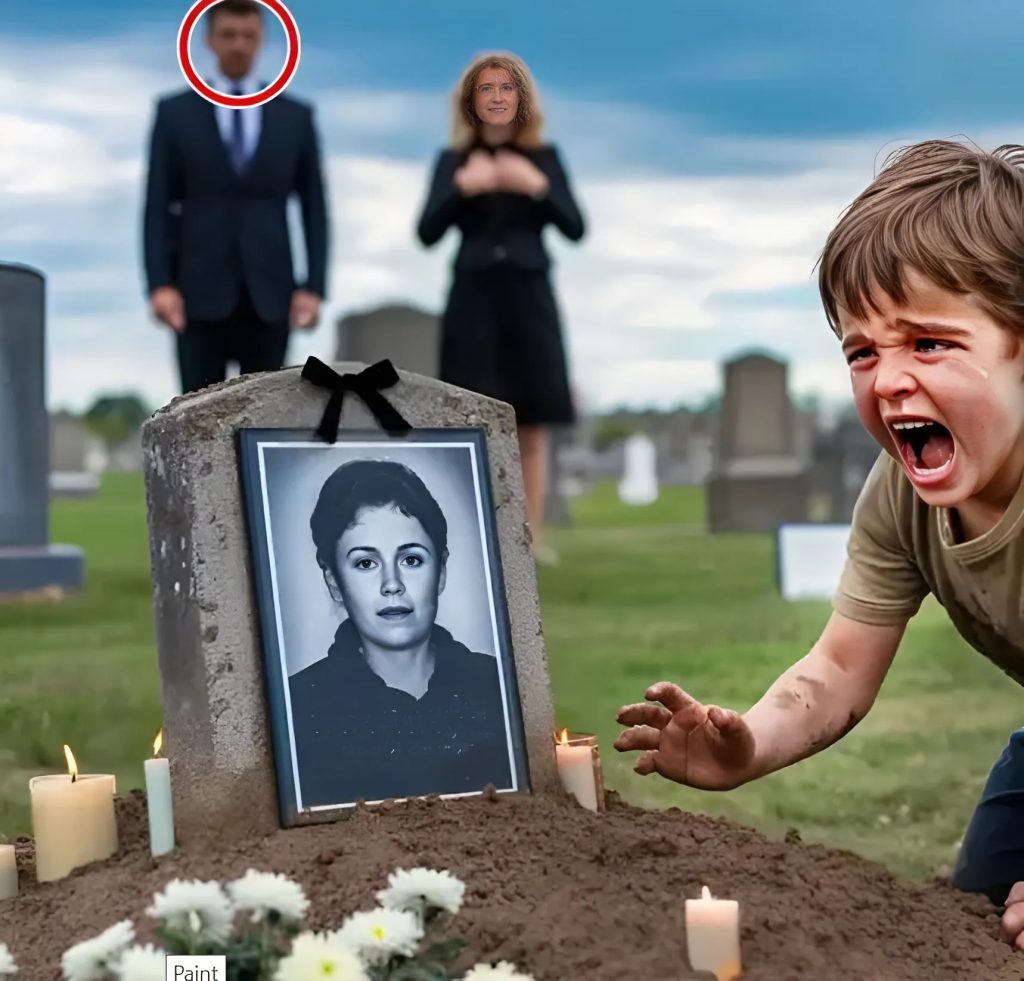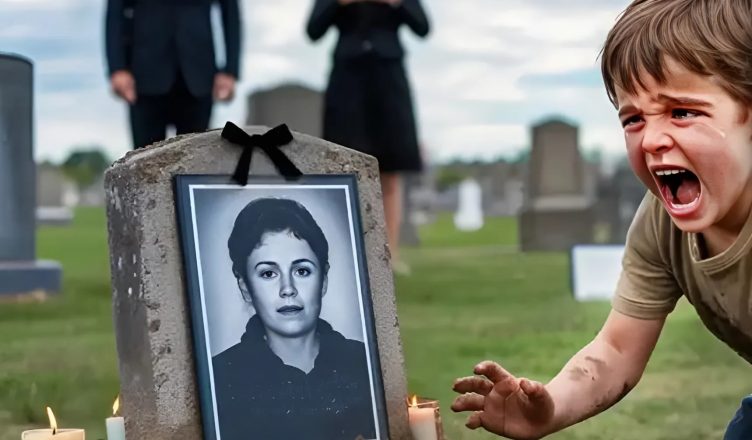The tree branches tapped softly overhead, dropping fragile leaves onto the path. Autumn had laid its hand on the landscape, quieting the world in soft tones of gray and ochre. In the farthest corner of the cemetery, where tombstones leaned like tired old men and moss veiled the names of the forgotten, a small figure knelt alone. There was no one else to witness it. No flowers had been laid recently. The earth was undisturbed except for a boy’s trembling presence.
Kevin Davidenko was six years old. He didn’t fully grasp what death meant, not in the way adults tried to explain. He knew only that his mother stopped coming home. That the house no longer smelled like cinnamon. That the warmth in the hallway had gone. That people spoke in quiet voices when he entered the room. And now he was here, staring at a flat, unremarkable stone that carried her name. It seemed unfair that something so small could represent someone so vast.
His jacket was two sizes too big, buttoned up to his chin, but it did little to keep out the biting wind. His fingers, reddened by the cold, clutched tightly at a clump of damp grass he had unknowingly torn from the earth. He looked at the ground as if it had betrayed him.

“She’s not gone,” he whispered, his voice shaking. “She’s still down there. I can feel her.”
Kevin didn’t cry. Not like he had at the funeral when his uncle had tried to pull him away from the grave. Now, his grief had calcified into something more haunting, more persistent. He wasn’t looking for comfort. He was looking for presence.
Around him, the wind carried distant echoes — the shuffling of leaves, a bird startled from a tree, the hollow creak of an old iron gate. But Kevin heard something else. A hum, maybe. A memory. Or something more.
He lowered himself closer to the earth, pressing his cheek to the damp ground. “If you can hear me… blink,” he said, not knowing how absurd it sounded. “Or… do something. Anything.”
The grave did not respond.
But Kevin stayed like that for a long time, long after his knees began to ache, long after the sky dimmed into dusk. He believed, with the clarity that only children seem to have, that death was not the end. That somehow, the person you love can’t be erased by silence and soil. That if you held on tight enough to the memory, they might hold on from the other side too.
The days passed. Kevin returned again and again. Sometimes with questions, sometimes with toys, once with a scarf he said she might need if she got cold. He told her about his new teacher, about the boy at school who threw paint on his backpack, about the dog he wished he had. He told her he’d gotten taller and held up a hand to show. Always, he whispered at the end, “You’re still here. I know it.”
And then, something began to change.
At first, it was subtle. A small indentation beside the headstone that hadn’t been there before. A patch of dirt turned over despite no recent rainfall. Kevin noticed, of course. He noticed everything. He said nothing, but the next time he came, he brought a candle, stolen from a drawer in his grandmother’s kitchen. He lit it with shaking hands, shielding the flame from the wind, and placed it on the stone. Then he sat beside it.
That night, the candle stayed lit long after it should have gone out.
Word began to spread. Someone had seen the boy sitting there, still as stone, talking to no one. A groundskeeper found a perfect white feather tucked into the name carved on the granite. A visiting priest swore he heard a lullaby in the breeze — a song no one had sung in decades. But Kevin didn’t care what they thought.
“She’s listening,” he told the priest flatly when asked. “She can’t talk like us. But she talks in other ways.”
The story grew. People came, out of curiosity, out of grief of their own, out of a need to believe. And Kevin’s quiet vigils became legend. Some said he was a boy touched by sorrow. Others claimed he was a vessel for something greater. But Kevin never claimed to be anything. He only ever said, “She’s still down there. And I still love her.”
He grew older. The jacket was eventually replaced. His voice deepened. He stopped tearing up grass when he knelt. But he never stopped coming.
Years later, when Kevin Davidenko was a man, they still spoke of the boy who waited by the stone. People who had never met him would stand at that same grave and wonder what it meant. Mothers left notes. Children left drawings. The ground around the grave had become a place of strange comfort — not haunted, but held.
It wasn’t the ghost of the mother that lingered. It was the persistence of love — unshaken by time, unbroken by death.
In the end, it wasn’t the stone that mattered. It was the boy who believed that love didn’t disappear. That even beneath layers of cold earth and silence, someone might still be listening.
And maybe, just maybe, someone was.
